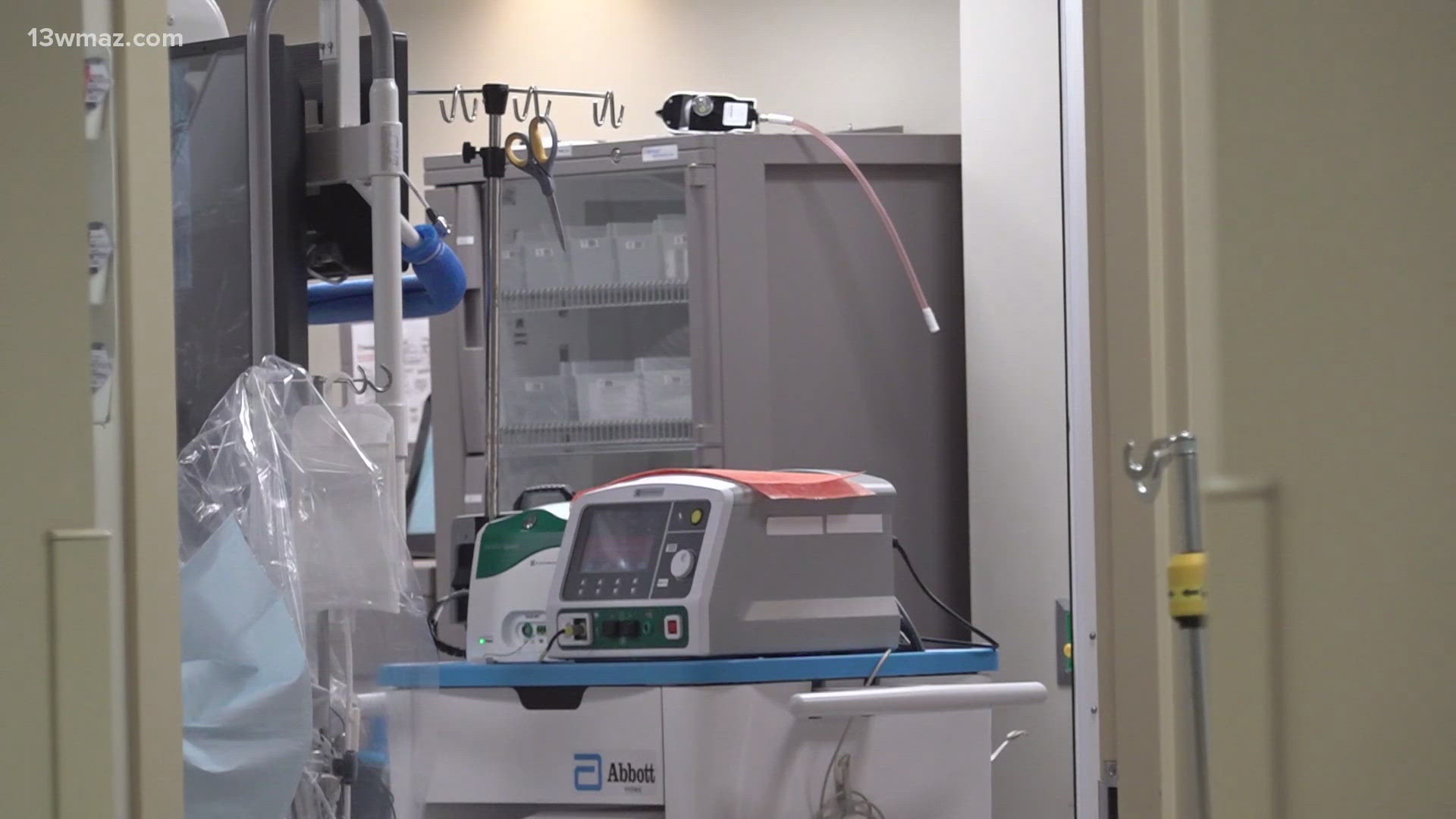MACON, Ga. — Since the pandemic, doctors are diagnosing more patients living with a nervous system disorder: postural orthostatic tachycardia syndrome.
It's commonly known as POTS.
Researchers say there's no biological test for POTS. That has led to delayed diagnoses in the past.
About 1 in 500 Americans live with the syndrome today, according to the National Institute of Health.
Though the syndrome is most common in women, one Georgia doctor said he's also seeing more male patients.
There's two reasons for more diagnoses, according to Dr. Carmine Oddis: COVID-19 and more research about the syndrome is done these days.
A Johns Hopkins University study says before the COVID-19 pandemic, POTS affected 0.5% to 1% of the U.S. population -- about 2 million people. Now, they say that's more than tripled, to an estimated 6 to 7 million new cases.
Dr. Oddis is a Piedmont Macon electrophysiologist -- a doctor specializing in the heart's electrical system, who treats abnormal rhythms.
"Palpitations is a big deal for us," he said. "We're looking for abnormal rhythms, rhythms that can cause strokes, rhythms, that can cause heart failure, rhythms that can cause sudden cardiac death."
Oddis has worked in Macon for 18 years and seen patients living with POTS his entire career.
When he first started practicing, Oddis said there wasn't as much attention on the syndrome because of the lack of research.
Now he and others, like the Johns Hopkins study, say the growth since the pandemic is largely among former COVID patients who develop POTS. For people who previously had COVID-19, researchers found those who were vaccinated had a less risk of developing POTS later.
But former COVID patients who've developed POTS tend to be older.
Oddis said he used to see diagnose a lot more patients in the 15-25 age group; now, he's diagnosing people in older age groups with POTS who previously had coronavirus.
"I have patients in every age range," he said. "Now, it's pretty astounding. It mostly looks like it's related to COVID a lot of the time."
Something you can use to monitor your heart rate on a regular basis is a smart watch.
"That's actually what helped me get diagnosed," Kali McCalvin said.
McCalvin's Apple Watch rests on her left wrist every day. Since the sixth grade, she's felt like something's off in her heart.
She's now 27 and has lived with POTS since years before the pandemic.
"It was when I was playing soccer actually," McCalvin recalled. "I've always had a really fast heart rate, and then it was mistaken for anxiety. Then, one day I went to the doctor, and the nurse was like, 'Something's wrong,' and I was like, 'Yeah, I know.' That's when I was referred to the cardiologist."
Before Dr. Oddis diagnosed her with POTS, McCalvin said she felt scared because she wasn't sure what was happening.
"It felt like I was trapped, and I didn't know what to do," McCalvin said.
The issue arises usually from "a positional change," Oddis said
"I usually tell people, if you feel lightheaded, if you're one of the lucky ones that's given a warning, like you see spots in front of your eyes and you're about to pass out-- lay down," he elaborated.
For all his patients living with POTS, Oddis explained he uses a "three-pronged attack" that includes dietary therapy, lifestyle therapy and medications.
"I usually tell my patients salt and water are your best friends," the doctor said. "Gently start exercise and ramp up... then you transition to the medications."
Before Oddis sees a lot of his patients, usually they're referred to him by their primary doctor.
"Primary care doctors, I honestly gotta hand the hats off to them," Oddis said. "They're putting 2 and 2 together, and they're really picking up on a lot of stuff, running through all the labs that you're supposed to get, and try to figure out what's going on. Actually, it leave me very little to do other than maybe the tilt table test."
The tilt table test is when a person lies down on a medical bed and their health levels are checked as the table tilts to monitor how their heart and nervous system respond to the positional changes.
It takes a team to get the patient any type of treatment, he explained.
"That's all it took, is one person believing me," McCalvin said.
With more research these days, Oddis said there is hope for the future of people who live with POTS and their treatment options.
McCalvin shares the lesson she learned: "I would just say, don't give up on yourself. If you feel like something's wrong, then listen to your body. All it takes is for one person to believe in you."
If you feel like you're lightheaded and dizzy on a regular basis, the first thing you should do is lie down, catch your breath, snack on something salty and drink something with electrolytes, like Gatorade. Then, contact your doctor.

